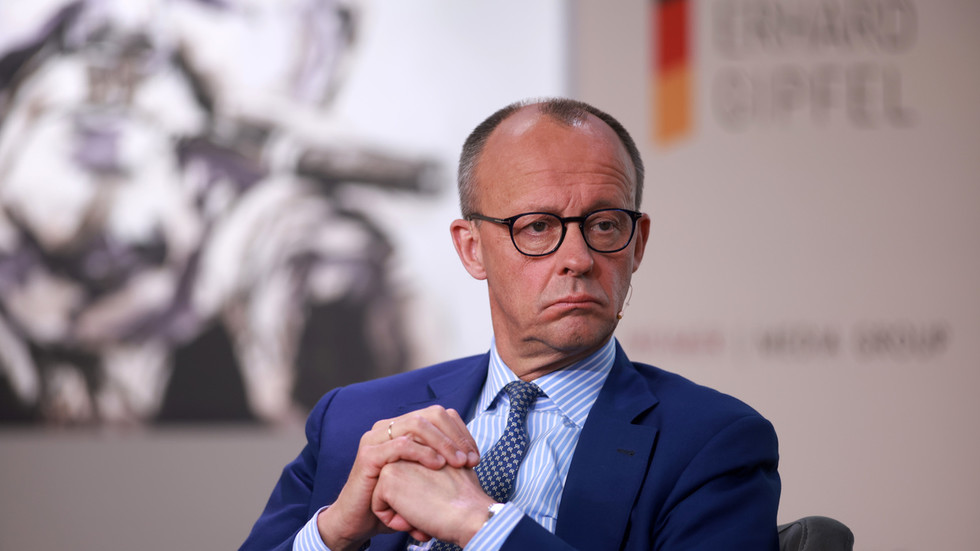
The CDU’s proposition has since sparked a wave of backlash and brought up accusations of breaking a fundamental political taboo

Friedrich Merz, head of Germany’s Christian Democratic Union (CDU) party © Getty Images / Johannes Simon
Friedrich Merz, the leader of Germany’s Christian Democratic Union party (CDU), sparked a wave of backlash on Sunday after publicly rejecting calls for the far-right Alternative for Deutschland (AfD) to be banned and stating a willingness to cooperate with the controversial party at the municipal level.
In a statement to public broadcaster ZDF, Merz pointed out that “party bans have never led to solving a problem” and suggested that the CDU was open to cooperating with AfD, exclusively at the municipal level, noting that “local politics is different from state and federal politics.”
The AfD has persistently been gaining in the polls and winning in local elections in eastern Germany. Last month, the party secured a district council seat in Sonneberg in Thuringia for the first time and also won a mayoral election in the state of Saxony-Anhalt.
“Of course, that’s a democratic election. We have to accept that,” Merz said. “And of course we have to look for ways in the regional parliaments how we shape the city, the county, the regional district.”
Merz stressed, however, that he and his party nevertheless completely ruled out any cooperation with the AfD at the regional or federal level, or in the European Parliament.
“There will be no participation of the AfD in a government,” he insisted.
For the past decade, the CDU has repeatedly insisted on a “firewall” against any direct or indirect cooperation with the AfD, which it has accused of being beyond the pale for its nationalist, anti-migration, and climate-change denying policies.

Read more
Merz’s sudden shift has resulted in a backlash, including from his own fellow party members. The CDU’s Kai Wegner, the mayor of Berlin, proclaimed on Twitter that “the AfD knows only opposition and division” and questioned where there should be any cooperation with the party.
“The CDU cannot, doesn’t want to, and will not cooperate with a party whose business model is hate, division and exclusion,” Wegner wrote.
Green lawmaker Sara Nanni, meanwhile, called Merz the “wrecking ball of democracy” and called his proposal to cooperate with the AfD “dangerous.” She also insisted that restricting a party must be allowed in order to allow “democracy to defend itself,” even if such bans don’t necessarily solve a problem.




